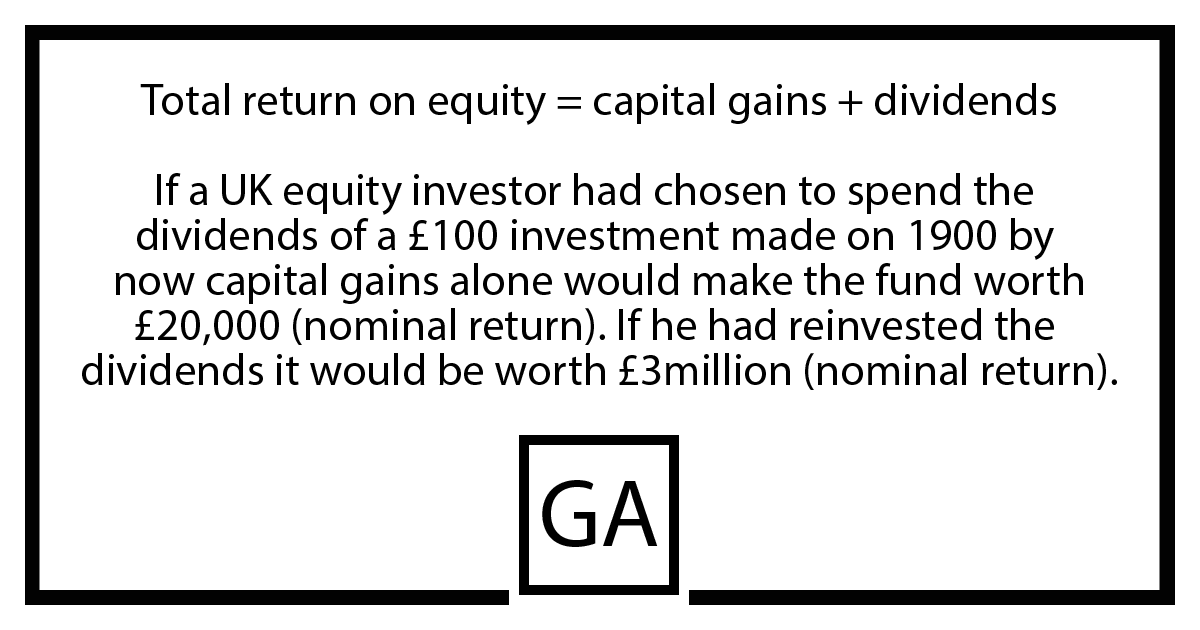|
The total return an equity investor receives consists of two elements:
Dividends. These are generally paid every six months from the after-tax profits of the company. Directors decide the proportion of earnings to be paid to shareholders, subject to shareholder approval. Note, however, that a company may not pay dividends. The reasons for this include that the company is currently unprofitable, or that it is fast-growing and needs to use all cash generated to invest in productive assets. Capital gain. The share price rises over time due to an increase in the underlying value of the business (or to temporary enthusiasm for the shares by investors, which may or may not be rational). So, where do the terrific returns on shares come from: is it predominantly from dividends or capital gains? Well, over a single year the returns on equities are largely due to share price movement; dividend income contributes a relatively small amount. However, long-term returns are overwhelmingly due to dividends. For example, if a UK equity investor had chosen to spend dividends received on a £100 investment made in 1900 as each year passed, rather than reinvest, by now capital gains alone take the fund to about £20,000 (nominal return). On the other hand, another investor who reinvested dividends over the same period would have had a fund worth over £3m (nominal return).
0 Comments
Leave a Reply. |
Glen ArnoldI'm a full-time investor running my portfolio. I invest other people's money into the same shares I hold under the Managed Portfolio Service at Henry Spain. Each of my client's individual accounts is invested in roughly the same proportions as my "Model Portfolio" for which we charge 1.2% + VAT per year. If you would like to join us contact [email protected] investing is about making the right decisions, not many decisions.
Categories
All
Archives
May 2023
|


 RSS Feed
RSS Feed